Abstract
The influence of maximal exercise testing on state anxiety was examined in three separate studies. Highly trained male distance runners (Study 1, n = 12) as well as college students with average (Study 2, n = 16) and below average (Study 3, n = 32) physical fitness levels completed graded maximal exercise tests. This last group was also randomly assigned to either a control or an 8 week training programme in order to determine the effect of increased fitness on the psychological responses to maximal exercise testing. Physical fitness was determined by the measurement of maximal oxygen uptake. State anxiety (State-Trait Anxiety Inventory) was assessed before and from 2-15 min following exercise. It was found that the state anxiety responses to maximal exercise testing were not influenced by re-testing or by 8 weeks of endurance training. Across the three study groups, the anxiety response was variable during the first 5 min following exercise testing; increases, decreases and no changes in anxiety were observed when compared to pre-exercise levels. The anxiety response to maximal exercise appeared to be dependent on the pre-exercise anxiety levels as well as the timing of the post-exercise assessments. It is concluded that maximal exercise testing can be associated with negative mood shifts during the first 5 min after exercise; however, this response is transitory and followed by positive mood shifts 10-15 min following such tests.
Full text
PDF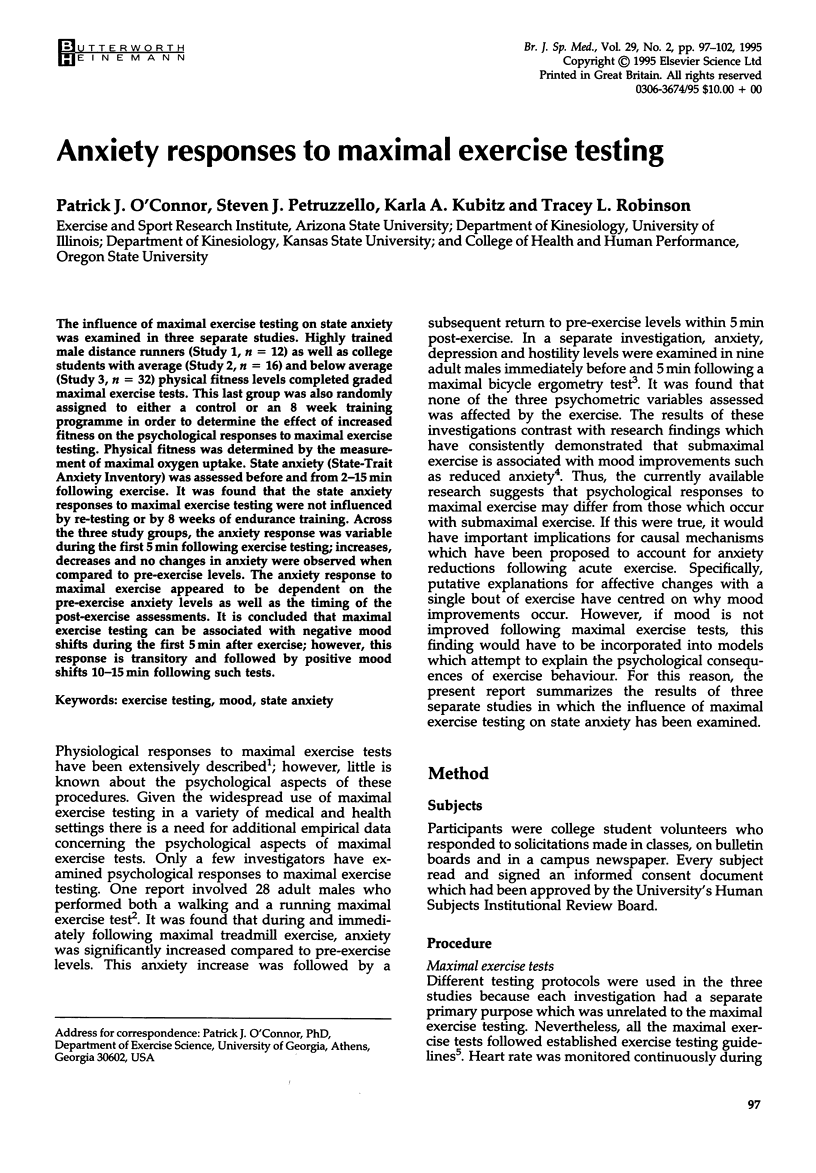
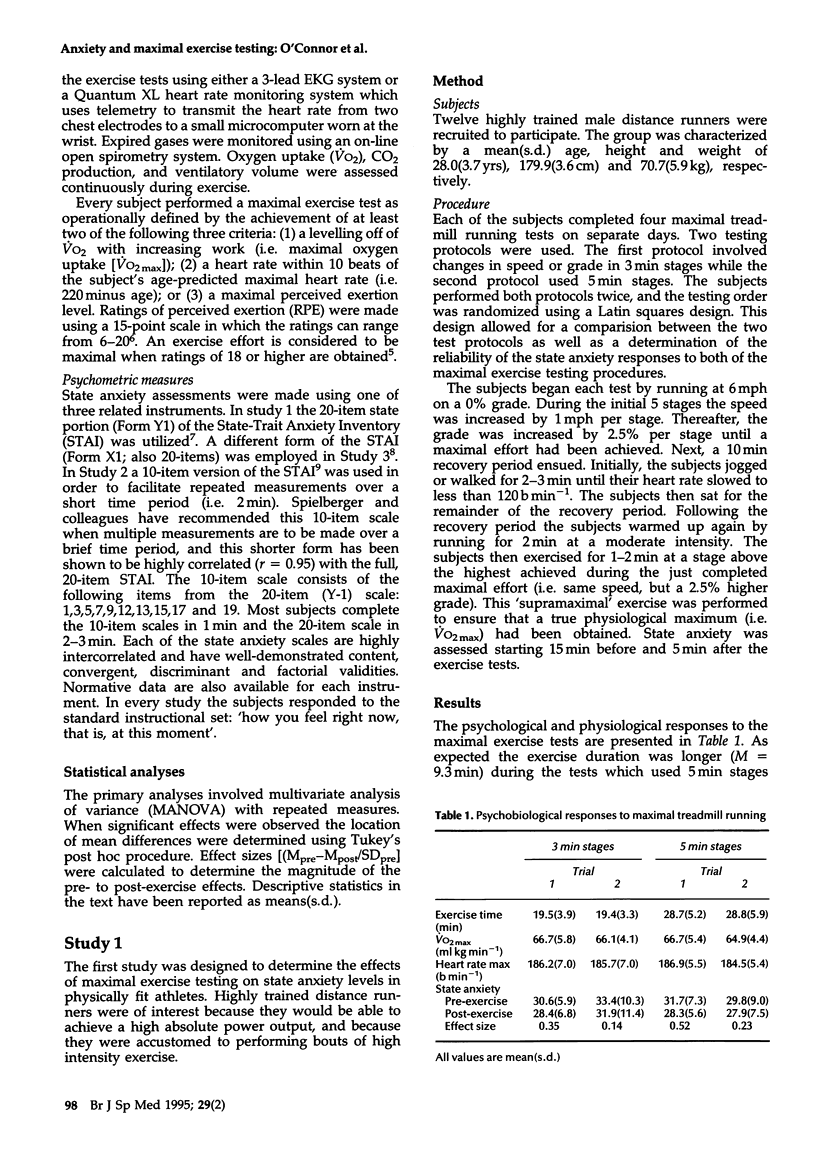
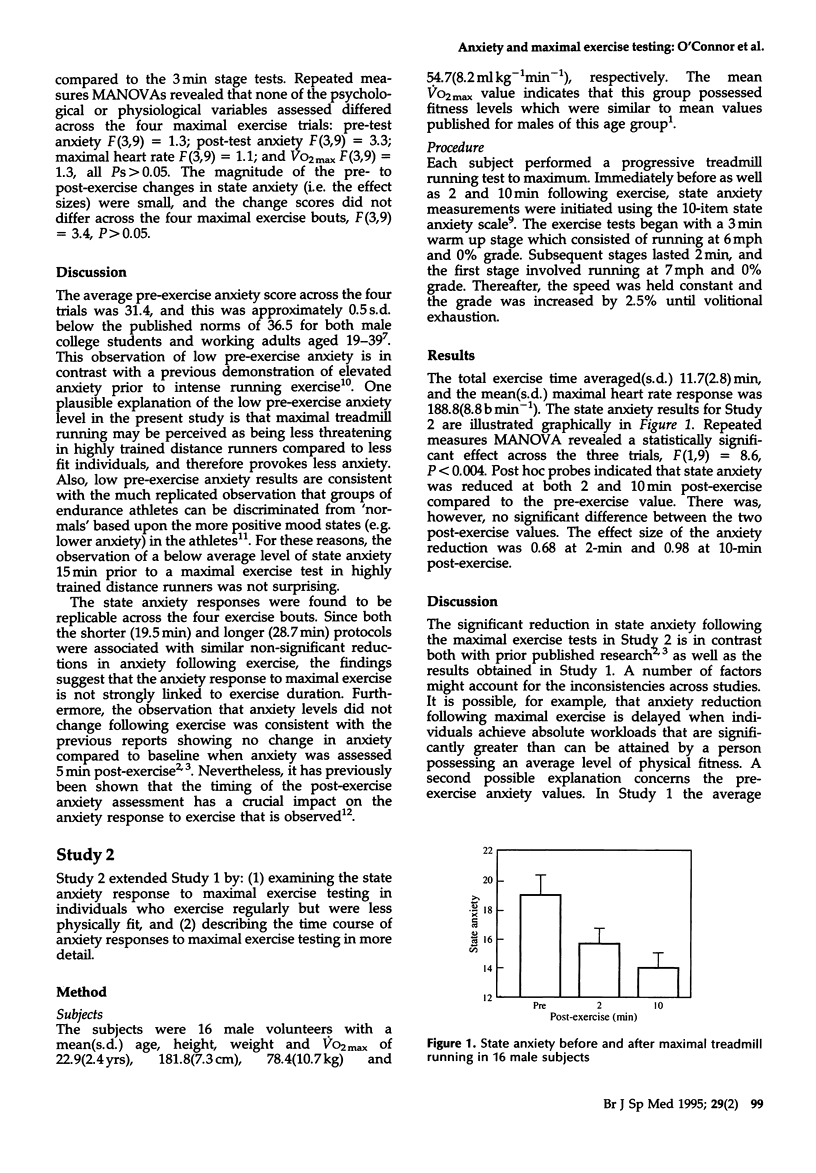
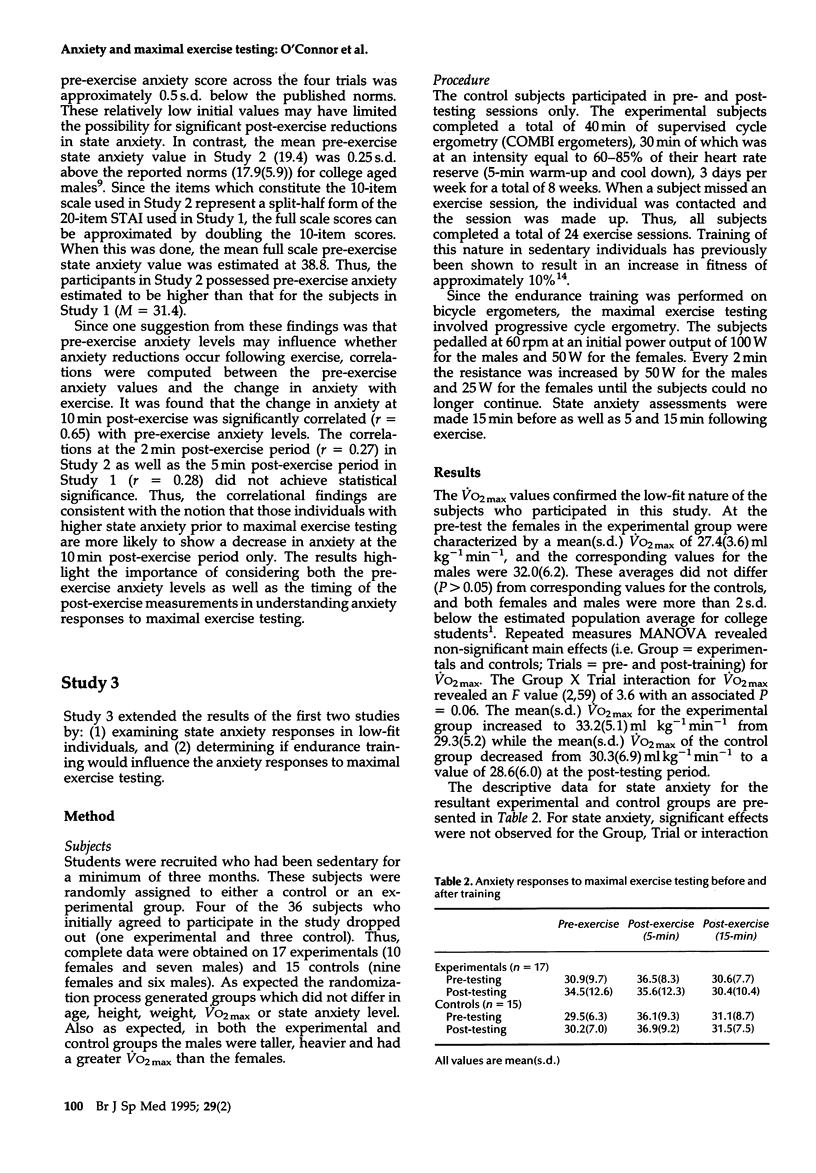
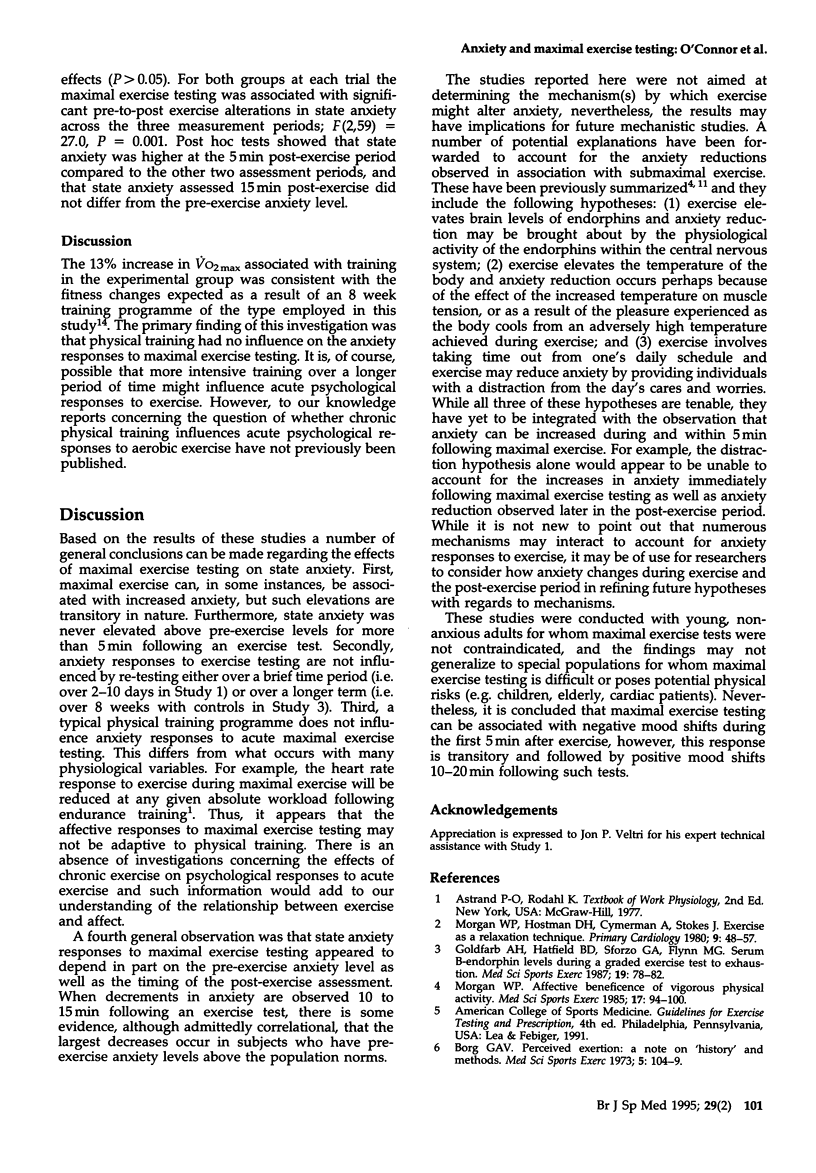
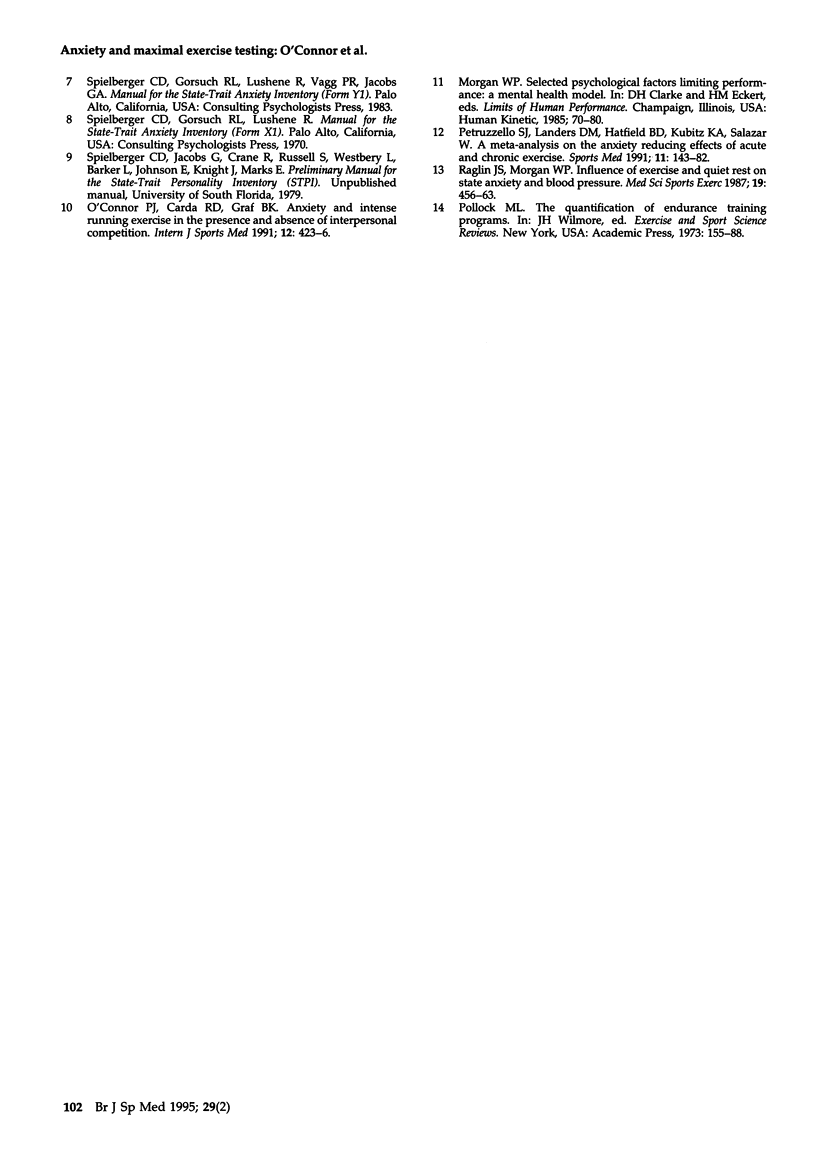
Selected References
These references are in PubMed. This may not be the complete list of references from this article.
- Goldfarb A. H., Hatfield B. D., Sforzo G. A., Flynn M. G. Serum beta-endorphin levels during a graded exercise test to exhaustion. Med Sci Sports Exerc. 1987 Apr;19(2):78–82. [PubMed] [Google Scholar]
- Morgan W. P. Affective beneficence of vigorous physical activity. Med Sci Sports Exerc. 1985 Feb;17(1):94–100. [PubMed] [Google Scholar]
- O'Connor P. J., Carda R. D., Graf B. K. Anxiety and intense running exercise in the presence and absence of interpersonal competition. Int J Sports Med. 1991 Aug;12(4):423–426. doi: 10.1055/s-2007-1024706. [DOI] [PubMed] [Google Scholar]
- Petruzzello S. J., Landers D. M., Hatfield B. D., Kubitz K. A., Salazar W. A meta-analysis on the anxiety-reducing effects of acute and chronic exercise. Outcomes and mechanisms. Sports Med. 1991 Mar;11(3):143–182. doi: 10.2165/00007256-199111030-00002. [DOI] [PubMed] [Google Scholar]
- Pollock M. L. The quantification of endurance training programs. Exerc Sport Sci Rev. 1973;1:155–188. [PubMed] [Google Scholar]
- Raglin J. S., Morgan W. P. Influence of exercise and quiet rest on state anxiety and blood pressure. Med Sci Sports Exerc. 1987 Oct;19(5):456–463. [PubMed] [Google Scholar]


